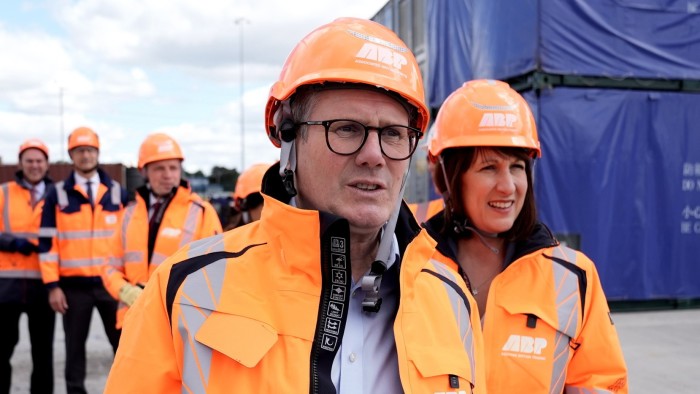Unlock the Editor’s Digest for free
Roula Khalaf, Editor of the FT, selects her favourite stories in this weekly newsletter.
The writer is a former cabinet secretary
Like many of his predecessors, Sir Keir Starmer is discovering that many obstacles to delivering the meaningful change that the electorate has asked for are hidden deep in the structures of our unplanned and often ill-conceived constitutional set-up.
Economic progress, public service reform and governance improvements are all becoming fearsomely difficult — far more than they should be. It leaves prime ministers in power but not yet in control — a fair summary of Starmer’s first year.
This month’s anniversary has reminded us that, in the UK parliamentary system, a prime minister without a functioning Commons majority is in trouble. Some backbenchers might feel pride in derailing the government’s welfare reforms, but the saga did nothing to help manage an annual disability benefits bill at £48bn and rising fast. Rachel Reeves and Pat McFadden, two of this government’s blunter fiscal disciplinarians, reminded the public in the days after the rebellion that someone will have to pick up the bill for the backbenchers’ stand. And it can only be the taxpayer or cuts to other public services that will pay for their intransigence: there is no alternative, given that the chancellor is rightly sticking to her fiscal rules.
When we strip away the political drama and focus on the problem, namely the soaring cost of people sitting outside the nation’s productive workforce, we see deep-rooted issues in our society and economy that whoever had won the last general election would have had to face. With high debt, high taxes, high spending on public services and anaemic economic growth, the nation’s fiscal outlook remains grim. The consequences of the crises and shocks we have faced since 2008, both self-inflicted and external, mean that Starmer and his government do not have the options open to the last Labour government to unlock growth and reform public services. And the system has become a morass of obstacles to change.
The UK’s long-held reputation for highly centralised power when compared with other nations is no longer accurate. Across our four nations, an increasing number of English devolution settlements, independent quangos and arm’s length bodies, courts, statutory consultees and the like, block the path from what a winning political party promises at an election to what it can then achieve in power.
If you happen to be a business working at the cutting edge of a new technology, a smaller housebuilder trying to fulfil local housing needs, a younger worker trying to get on the housing ladder or a minister wanting to deliver improvements in public and private productivity, this status quo is a nightmarish quagmire. And if you believe that democracy should be upheld, through a reasonably balanced equation of change promised and change delivered, this dangerous muddle of powers and responsibilities should be a cause for alarm.
For all the frustrations that ministers undoubtedly feel about MPs wielding their right of veto over changes to welfare, at least that veto operated in plain sight. The more serious problems facing a government that has promised change is all the veto power hiding away in our overly complex planning laws, our highly segmented public services, our seemingly endless avenues of legal challenge to public policy and our regulatory constructs. The vast majority of these vetoes have been willingly, if ignorantly, handed over by parliament over many years. It has been done without totalling up the sum of power assigned further and further away from our democratically accountable politicians.
In order to fulfil his promises to the electorate, the prime minister will have to wield axes, sledge hammers and all manner of tools to, dare I say it, take back control. He has promised us a bonfire of the quangos, reformed planning laws, AI-driven revolutions in public services and the health service to put the consumer rather the provider first. To make it a reality, he will have to be bold.
Parliamentary processes need to be overhauled, public service management chains shortened, endless entities must be brought together and multiple procurement systems made much more timely to keep up with technological innovation. Above all else, there needs to be accountability in the public sector. Opinion polls suggest that the public is sceptical but, whatever your politics, if you want an economy and public services befitting a major power, you should be hoping for a second year that sets our democracy on a much more sustainable course. This prime minister — and his successors — needs to be in power and in control.
